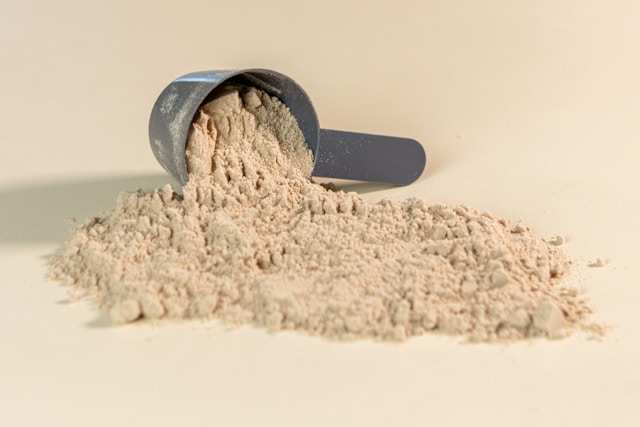
Protein Powerhouse is Taking Over the World
The ubiquitous and simple pea is poised to continue its takeover of the plant-based protein world as Earth's population continues to expand and grow in the 21st Century.
Pea Protein concentrates and isolates have an 80-90% protein content by weight making them a consistent, easy and affordable way to ingest protein for both vegetarians and omnivores alike.
Growing Demand
The demand for protein ingredients has surged over the last few years. The global protein ingredient market was valued at USD 38 billion in 2019 and is expected to grow at a rate of 9.1% from 2020 to 2027.
Consumption of animal proteins has considerably increased in the recent past, as well as with a growing interest in overall protein, and the market for plant protein ingredients is expected to grow significantly. Plant proteins can offset market share from animal proteins (dairy, egg, and meat) because they can be produced at competitive prices.
Increases in the vegan, vegetarian, and flexitarian populations have propelled the usage of plant proteins in food products. Additionally, plant proteins are being used in manufacturing a wide range of natural products. Overall, the growing food industry on account of increasing population and consumer awareness is propelling the protein market and the need for alternative protein ingredients.

Pea Protein is derived from Split Peas
The pea is a member of the food legume family and historically was first cultivated as a protein-rich crop primarily in west Asia and north Africa. Split peas are rich in protein, carbohydrates, dietary fiber, vitamins and minerals.
Pea (Pisum sativum) is an important source of nutritional components and is rich in protein, starch, and fiber. Pea Protein is considered a high-quality protein and a functional ingredient in the global industry due to its low allergenicity and high protein content, in addition to its commonality, affordability and sustainability.
Health Benefits
The consumption of peas may help reduce blood glucose, improve gastrointestinal health and enhance satiety.
Functionality in the Food Industry
Additionally, pea protein has excellent functional properties such as solubility, water, and oil holding capacity, emulsion ability, gelation and viscosity. These functional properties make Pea Protein a promising ingredient in the food industry.
Pea Protein can be used as a food emulsifier, encapsulating material, a biodegradable natural polymer, and also in cereals, bakery, dairy, and meat products.
Ingredients derived from pea provide unique attributes in food systems such as: egg replacement solutions in pasta, cakes, cookies, and batters and breading systems; as high-protein ingredients in snack, bakery, pasta and meat products; as texturizers in soups, crackers, cookies, soups, dips, and as emulsifiers in meat and sauce products.
Furthermore, several extraction techniques are used to obtain pea protein isolate and concentrate, including dry fractionation, wet fractionation, salt extraction and mild fractionation methods.
Sources:
1. https://www.grandviewresearch.com/industry-analysis/protein-ingredients-market
2. https://academic.oup.com/af/article/10/4/53/5943509
3. https://www.sciencedirect.com/science/article/pii/B9780128027783000093?via%3Dihub


